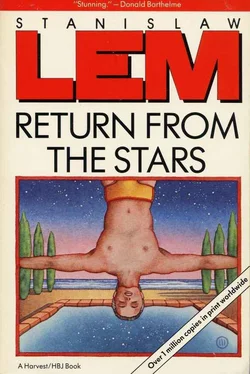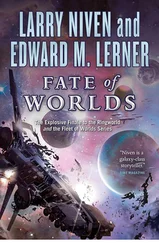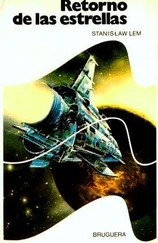But I did not become frightened until I closed behind me the door of my room upstairs. At Adapt they had told me, after the tests, that I was completely normal. Dr. Juffon had said the same thing. But could a normal person feel what I was feeling at that moment? Where did it come from? I was not a participant in it — I was a witness. Something was taking place, something irreversible, like the motion of a planet, an almost imperceptible, gradual emergence, still without form. I went to the window, looked out into the dark garden, and realized that this must have been in me ever since lunch, from the very first moment; it had just required a certain period of time. That was why I had gone to the city, why I had forgotten about the voices in the dark.
I was capable of doing anything. For that girl. I did not understand the how of it or the why. I did not know if it was love or madness. That did not matter. I only knew that everything had lost its importance for me. And I fought this — standing by the open window — as I had never fought anything before; I pressed my forehead to the cold window and feared myself.
I must do something, I mouthed. I must do something. It’s because something’s wrong with me. It will pass. She can’t mean anything to me. I don’t know her. She isn’t even especially pretty. But at least I won’t do anything. I won’t — I pleaded with myself — at least I won’t commit any… ye gods and little fishes!
I turned on the light. Olaf. Olaf would save me. I would tell him everything. He would take charge of me. We would go off somewhere. I would do what he told me, everything. He alone would understand. He would be arriving tomorrow. Good.
I paced the room. I could feel each one of my muscles, it was like being full of animals, they tensed, grappled with one another; suddenly I knelt at the bed, bit into the blanket, and made a strange sound, not like a sob, but dry, hideous; I did not want, I did not want to harm anyone, but I knew that it was useless to lie to myself, that Olaf couldn’t help, no one could.
I got up. For ten years I had learned to make decisions at a moment’s notice, decisions on which lives depended, my own and others’, and I had always gone about it in the same way. I would go cold, my brain would turn into a machine made to calculate the for and the against, to separate and solve, irrevocably. Even Gimma, who did not like me, acknowledged my impartiality. And now, even if I had wanted to, I could not have acted differently, but only as then, in extremity, because this, too, was an extremity. I found my face in the mirror, the pale, almost white irises, narrowed pupils; I looked with hatred, I turned away, I could not think of going to bed. As I was, I swung my legs out over the window ledge. It was four meters to the ground. I jumped, landing almost without a sound. I ran silently in the direction of the pool. Past it, and onto the road. The phosphorescent surface led to the hills, wound among them like a shining snake, a viper, until it disappeared, a scar of light in the shadows. I tore along, faster and faster, to tire my heart, which pounded so steadily, so strongly; I ran for about an hour, until I saw the lights of some houses ahead. I had returned to my starting point. I was weary now, but for that reason I kept up the pace, telling myself silently: There! There! There! I kept running and finally came to a double row of hedges. I was back in front of the garden of the villa.
Breathing heavily, I stopped by the pool and sat down on the concrete edge; I lowered my head and saw the stars reflected. I did not want the stars. I had no use for them. I had been crazy, deranged, when I had fought for a place in the expedition, when I had let myself be turned into a bleeding sack in the gravirotors; what reason had I had, and why, why had I not realized that a man must be ordinary, completely ordinary, that otherwise it is impossible, and pointless, to live.
I heard a rustle. They went by me. He had his arm around her, they walked in step. He leaned over. The shadows of their heads merged.
I rose. He was kissing her. She, embracing his head. I saw the pale lines of her arms. Then a feeling of shame, of shame such as I had never known, horrible, sickening, cut through me like a knife. I, interstellar traveler, companion of Arder, having returned, stood in a garden and thought only of how to take a girl from some man, knowing neither him nor her, a bastard, an unmitigated bastard from the stars, worse, worse…
I could not look. And I looked. At last they slowly went back, clinging to each other, and I, skirting the pool, set off again, then saw a large black shape and at the same time hit something with my hands. It was a car. Groping, I found the door. When I opened it, a light came on.
Everything that I did now was with a deliberate, concentrated haste, as if I was supposed to drive somewhere, as if I had to…
The motor responded. I turned the wheel and, headlights on, drove out onto the road. My hands shook a little, so I tightened my grip on the wheel. Suddenly I remembered the little black box; I braked sharply and nearly skidded off the road, I jumped out, lifted the hood, and began feverishly to look for it. The engine was completely different, I couldn’t find it. Perhaps at the very front. Wires. A cast-iron block. A cassette. Something unfamiliar, square — yes, that was it. Tools. I worked furiously, but with care; I hardly bloodied my hands. Finally I lifted out the black cube, heavy as if it were solid metal, and flung it into the bushes along the side of the road. I was free. I slammed the door and took off. The air began to whistle. More speed. The engine roared, the tires made a piercing hiss. A curve. I took it without slowing down, cut to the left, pulled out of the turn. Another curve, sharper. I felt an enormous force pushing me, along with the machine, to the outside of the bend. Still not enough. The next curve. At Apprenous they had special cars for pilots. We did stunts in them, to improve reflexes. Very good training. Developed a sense of balance, too. For example, on a turn you throw the car onto the two outside wheels and drive like that for a while. I could do that, at one time. And I did it now, on the empty highway, careening through the darkness shattered by my headlights. Not that I wanted to kill myself. It was simply that nothing mattered. If I showed no mercy to others, then I could show none to myself. I took the car into the turn and lifted it, so that for a moment it went on its side, tires howling, and again I flung it, in the opposite direction, fishtailed with a crash into something dark — a tree? Then there was nothing but the roar of the engine picking up speed, and the dials’ pale reflections on the windshield, and the wind whistling viciously. And then I saw, up ahead, a gleeder, it tried to avoid me by taking the very edge of the road, a small movement of the wheel carried me by it, the heavy machine spun like a top, a dull thud, the clatter of torn metal, and darkness. The headlights were smashed, the engine died.
I took a deep breath. Nothing had happened to me, I was not even bruised. I tried the headlights: nothing. The small front lights: the left worked. In its weak glow, I started the engine. The car, grinding, wobbled back onto the highway. A fine machine, though: after all that I had put it through, it still obeyed me. I headed back, slower now. But my foot pressed the pedal, again something came over me when I saw a curve coming up. And again I forced the maximum from the engine, until, with squealing tires, thrown forward by the momentum, I pulled up just before the hedge. I drove the machine into the brush. Pushing aside the shrubbery, it came to rest against a stump. I did not want anyone to know what I had done to it, so I pulled down some branches and threw them over the hood and the broken headlights. Only the front had been smashed; there was just a small dent in the back, from the first collision with the pole or whatever it had been there in the darkness.
Читать дальше











